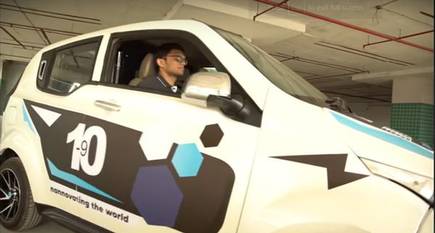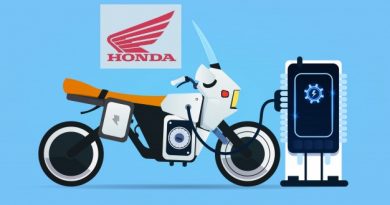Refueling Vehicles with Water; A Metal-Air Battery with 1,000 km Range

A nanotechnology startup working out of IISc Bangalore has developed a metal-air battery that on a single refueling with ‘water’, promises a range of over 1,000 km. Log 9 Materials, founded in 2015 by Akshay Singhal and Kartik Hajela at IIT Roorkee, has been conducting trials to make a car, retrofitted with their ingenious metal-air battery, to run on water.
Powering the future of mobility on air and water.Now charging won't stop you from reaching your destination. Just refuel…
Posted by Log 9 Materials on Friday, November 2, 2018
Conventional lithium-ion batteries store energy rather than generating it and usually offer a range close to 100-150 km after which recharging them is a task in itself which takes a few hours, according to Akshay. “If you are driving from Koramangala to the airport [in Bengaluru], you can’t come back with one single charge,” Mr. Singhal said in an interview. Log 9 aims to replace the requirement to charge e-vehicles and instead refuel them just like gasoline, but with water. According to the IISc affiliated startup, their battery has the more conventional lithium-ion beat on nearly all fronts. An initial cost almost half of that of a lithium-ion battery and instead of frequently recharging, ‘refuelling’ of the battery – which uses aluminium, besides water as fuel, giving a range of 1,000 km after every top-up.
The startup is working with what they refer to as a wonder material. Using ‘graphene’ to make the metal-air batteries commercially viable and affordable for e-vehicles and stationary applications like power backup products.
Log 9’s experience and expertise in ‘graphene’ came in handy while developing what might turn out to be the future of energy storage and generation, having previously developed products like the Log 9 Oil Sorbent (LOS) and the Post Purification Filter (PPuF). The material, which is 200 times stronger than steel, holds promise for the next generation batteries due to its properties.
The battery enables the car to run on a simple fuel cell technology that uses electrochemical reaction to produce electricity but, there is a ‘graphene rod’ along the metal plate that generates electricity with water as its base for the chemical reaction. The electricity thus generated is sent to an electric motor that drives the car.
The firm is using the IISc’s sophisticated facility to work on graphene products. Professor Ashok Misra, an honorary energy professor at IISc, said the growth of e-vehicles requires an innovative battery solution to make it a convenient proposition for end-use customers. “Log 9 Materials has demonstrated the capability to tackle this energy-generation bottleneck… with a commercially viable solution,” he said.
Log 9 has so far raised $1 million and is now in the process of raising $10 million from venture capital firms to help commercialise the product in India, U.S. and Europe. One of the most notable invertors in the startup, Hemant Luthra, chairman of auto component supplier Mahindra CIE believes that more companies are now interested in investing having seen the potential of the product.




